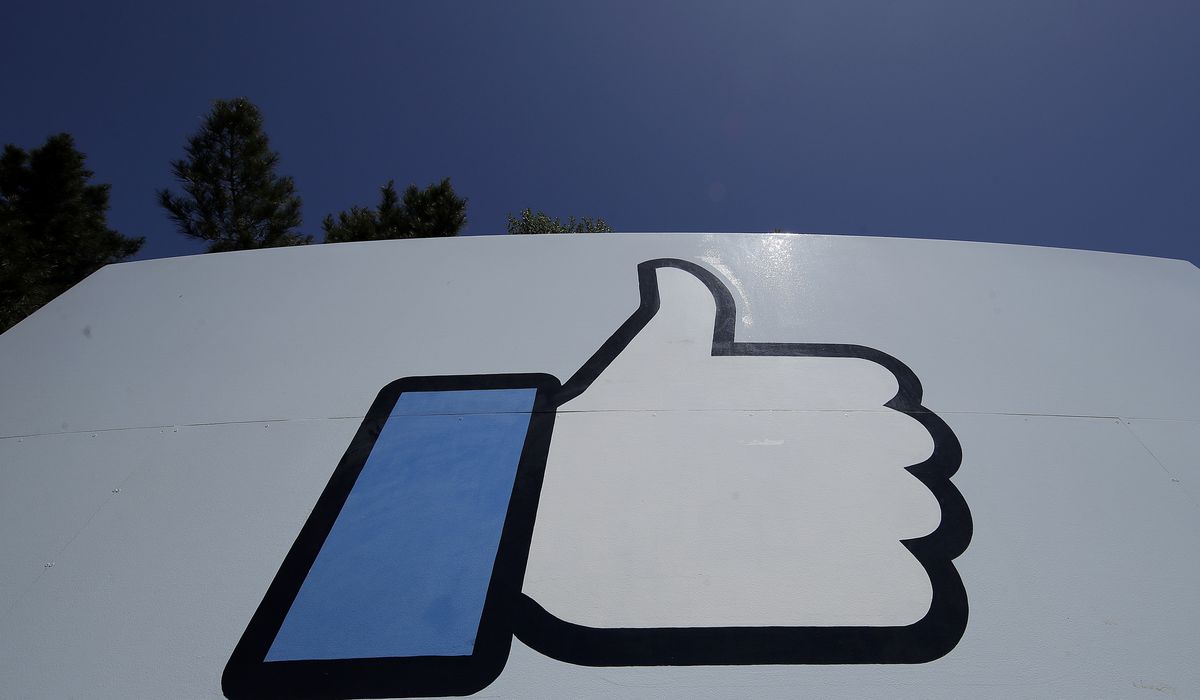
Facebook is not happy with this world and believes it can build a new reality.
Amid a crush of bad publicity, governmental scrutiny and growing competition for its social media business, the company is hiring workers and making products to create the “metaverse.”
On the company’s blog, Facebook Vice Presidents Nick Clegg and Javier Olivan describe the metaverse as a new computing platform and “a new phase of interconnected virtual experiences using technologies like virtual and augmented reality.”
The expansion would position the social media giant to compete with Google and Apple, which host Facebook apps.
Facebook’s new products are designed to remove barriers between the physical and digital worlds. Facebook said in March that it was building a neural wristband to allow people to type without using a keyboard. The company insisted the product would not involve “mind reading.”
Last month, Facebook debuted Ray-Ban Stories. These glasses allow wearers to take pictures, watch videos, listen to music and make phone calls.
Facebook intends to hire 10,000 more workers in Europe over the next five years to build its augmented reality business. It has started rolling out products and acquiring companies to make it happen.
The shift is dramatic for the massive social media company, which said in July that it averaged 2.9 billion monthly active users. Business and marketing analysts say the changes at Facebook are necessary because shareholders and potential investors feel threats of government regulation and pressure from public criticism after former employees accused the company of knowingly harming children and fomenting political manipulation.
Instead of letting U.S. lawmakers amplify claims that the tech giant has affected elections, has increased childhood suicides and is tantamount to Big Tobacco, Facebook aims “to rewrite history,” said University of Louisville marketing assistant professor Aaron Barnes.
“They’re not playing the 12-month game,” Mr. Barnes said. “A smaller company can change their name at the drop of a hat. … They’re hoping to affect how they’re remembered decades from now.”
Facebook has acquired companies and recruited teams of workers to expand its metaverse business despite antitrust scrutiny worldwide from its acquisitions of Instagram and WhatsApp.
Facebook recently acquired AI.Reverie, which built virtual worlds and environments for people to train artificial intelligence products. Some of the company’s early funding came from U.S. taxpayers through the Air Force innovation arm AFWERX and In-Q-Tel, the strategic investor for the intelligence community.
Asked about the Facebook acquisition, AI.Reverie co-founder Paul Walborsky declined to answer questions and referred The Washington Times to Facebook.
Facebook confirmed that it had acquired AI.Reverie, but it gave no details about what the acquisition would provide. A Facebook spokesperson said the AI.Reverie team would “accelerate our synthetic data capabilities” and “unlock improved user experiences in a range of use cases,” including in the metaverse.
Downpour Interactive and BigBox VR are among the other companies Facebook has bought this year. Oculus, Facebook’s virtual reality hardware company, announced the additions. Downpour Interactive and BigBox VR are responsible for virtual reality games.
Facebook CEO Mark Zuckerberg told The Verge in July that his company would “effectively transition from people seeing us as primarily being a social media company to being a metaverse company.”
Rumors are spreading that Facebook is considering a new name to oversee its various products. Business and technology analysts pointed to Alphabet, the parent company of Google and the companies it acquired, such as YouTube, as a potential road map for Facebook.
Facebook declined to comment on the speculated “rebrand,” which The Verge said could involve the name “Horizon,” given the word’s usage in various Facebook projects.
Facebook is holding a conference Thursday about its augmented and virtual reality business, and the rumored name change promises to attract more attention to the company’s new direction.
Tim Derdenger, Carnegie Mellon University associate professor of marketing and strategy, said Facebook is attempting to distance itself from the negative perception of social media companies because of the pressure on shareholders.
He said the company also appears to be considering how new entrants will compete in the social media industry with different approaches to content moderation. An example is former President Donald Trump’s Truth Social app, which is scheduled to launch next year.
“It’s a delicate space if that’s the space they’re going to want to go down,” Mr. Derdenger said. He said one misstep could unravel Facebook’s work if it damages the cycle of people using its platform and connecting with others.
Facebook still faces federal antitrust action, but its new business model could change the perception of the company on Capitol Hill and head off a crackdown, said Neil Chilson, a former acting chief technologist at the Federal Trade Commission.
Mr. Chilson, the author of a new book on leadership, “Getting Out of Control,” said Facebook’s ability to create a metaverse is far from guaranteed.
Unlike interaction through webpages and social profiles, Mr. Chilson said, the metaverse may allow users to take their profiles with them in the physical world all the time, everywhere they go.
“We’re talking about establishing physics, essentially, of a new world and in a current environment where consensus is hard to get,” Mr. Chilson said.








